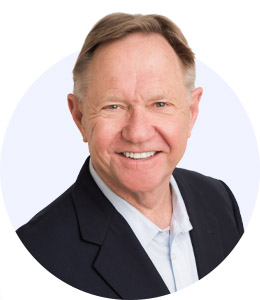The new book The Human Margin: Building the Foundations of Trust, which I coauthored with Dr. Katherine A. Meese, came out this week. I am grateful to Katherine for partnering with me on the book and to the American College of Healthcare Executives (ACHE) for agreeing to publish it. We share some of the research and insights from the book on my latest podcast available on the Healthcare Plus Solutions Group website. Click here to listen.
I am really excited about this book. Why? Because the message at the heart of it—the presence of trust in the workplace, the trust that exists between leaders and employees—has never been more important than it is right now.
We all know the benefits of trust. It helps with retention. It fosters a sense of belonging. It promotes employee well-being. All of these are super-hot issues. When trust is present, people feel safe enough to collaborate, to be vulnerable, to be open and compassionate…which helps all of us achieve our mission and our outcomes.
Trust has always mattered, but through no fault of their own, owners and leaders were impacted negatively across the board by Covid. And one of the areas impacted was trust.
One thing we learned from Covid is that the trust deficit isn’t about leaders doing untrustworthy things. The vast majority of leaders do have employees’ best interests at heart. They are trustworthy individuals. It’s more about the perception that Covid created. External environments sometimes create challenges.
Another thing we’ve learned (from Covid and from other disruptive events) is what really builds trust between employees and leaders. For example, we’ve learned that people want to be seen by their leaders. They want leaders to recognize and acknowledge what they are going through. It’s less about rewards or financial bonuses. It’s a different kind of recognition. It’s knowing that all the stress they’re going through matters to somebody. It’s about listening, understanding, and empathy.
Trust is built one action at a time, one conversation at a time. Don’t underestimate the power of making small fixes that improve people’s lives; joining them at lunch on their break; and finding ways to let them know you love, trust, and appreciate them. Small gestures mean a lot (and they aren’t small to employees).
The ability to do and say things that build trust hinges on great communication. While we cover a lot of trust builders in The Human Margin, this is one of the foundational pieces. Great, intentional communication is one of the most powerful tools we have for building trust. That’s why there will be a five-part series of columns on communication.
Please check back next Sunday for my first column in the series on how good communication builds trust and helps your organization thrive. As always, thank you for reading and for sharing your thoughtful feedback. I am grateful.
Quint Studer, Katherine A. Meese, PhD, and Dan Collard will speak at the 2024 ACHE Congress on Healthcare Leadership. Their session, “The Human Margin: What It Is, Why It Matters, and Why TRUST Is the Key to Maximizing It,” will be held on Tuesday, March 26, at 9:00 am. Visit https://congress.ache.org/ to learn more.







